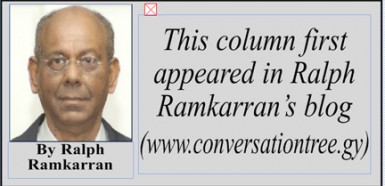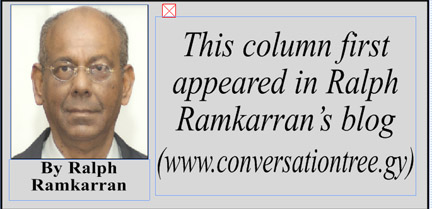In a wide-ranging, courageous and innovative decision, the Indian Supreme Court ruled a few weeks ago that transgenders, a broad category of persons with varying gender situations, identities and issues, are entitled to the protection of the Indian Constitution. It held in the case of National Legal Services v Union of India and Others that ‘transgenders’ are neither male nor female, but a third gender and that transgenders can answer ‘other’ to any oral or written question officially inquiring about their status, treated as a community discriminated against and have special and defined rights.
The decision reviewed legal developments in India and all over the world including the United States, Canada, Europe, Australia, New Zealand, England, Pakistan and other countries. It referred to the recognition of transgenders in ancient India and relied on international conventions against discrimination on the basis of sex, which were applied on the basis that there is no conflict with municipal law, a principle previously upheld in India. In Guyana our constitution actually mandates that our courts must take into account international conventions in their decision-making.
There are many examples of innovative decision-making, like this one, which our courts can follow if the appropriate cases are brought before it. In the US, Clarence Gideon, a petty criminal, persisted with his demand from the outset that the constitution entitled him to legal representation on a charge of break and enter. It was the only issue he raised. He appealed on that ground right up to the US Supreme Court and in Gideon v Wainright, 1963, the court ruled that defendants charged with criminal offences were entitled under the Fourteenth Amendment (due process of law and equal protection before the law) to be provided with a lawyer to defend them.
Canadian decisions are equally important. However, no one has yet tested in our courts the applicability in Guyana of the decision of the Ontario Supreme Court in Halpern v Attorney General of Canada, 2003, which allowed same sex marriage under section 15(1) of the Canadian Charter protecting equality before the law without discrimination, which our constitution also provides for.
 The recognition of transgender as a separate gender, or related issues, has been quietly gaining approbation in very conservative societies, such as Nepal and Pakistan. It should be no surprise that India followed suit, even though, contradictorily, it had previously affirmed an old outdated, anti-homosexual law, similar legislation which still exists in Guyana. However, although transgenders are a minority who have been discriminated against, they have been historically visible as part of the Indian street scene. Homosexuality has not had the same or similar recognition by the society at large.
The recognition of transgender as a separate gender, or related issues, has been quietly gaining approbation in very conservative societies, such as Nepal and Pakistan. It should be no surprise that India followed suit, even though, contradictorily, it had previously affirmed an old outdated, anti-homosexual law, similar legislation which still exists in Guyana. However, although transgenders are a minority who have been discriminated against, they have been historically visible as part of the Indian street scene. Homosexuality has not had the same or similar recognition by the society at large.
India’s courts are not the only innovative ones in expanding constitutional rights. Reference has been made to the US and Canadian courts. In the US, during the heyday of its liberal surge, now sadly in deep retrogression, the decision of Roe v Wade by the Supreme Court, 1973, allowing women the right to choose, was based on the Fourteenth Amendment and the right to privacy, a right which is not explicitly provided for in the US Constitution, but whose existence was implied by the court. This is the reason why the opponents of the decision claim that it was wrong and that it violated the constitution.
Caribbean countries, though largely homophobic in relation to gender issues, are far better positioned than many countries in Asia and Africa to take different positions. In these matters we are not burdened by centuries of history and culture. Except for Amerindians, we lost some of these, or they were taken away, when we were transported here as slaves and indentured labourers. Although we have remained conservative in relation to these social, cultural and sexual matters, our societies are far better placed than others where traditions have been entrenched for centuries if not millennia. Our leaders and our judiciary have had better access to developing ideas of human and constitutional rights of minorities that would make them more sympathetic to the creative application of our constitution for the protection of those rights.
For example, the constitutional right to a fair trial can easily accommodate the right of a person charged with a criminal offence to be provided with a lawyer. And the rights to freedom of expression and against discrimination, liberally interpreted, can accommodate the right to same sex marriage or the protection of transgenders. The US and Canadian courts in the past and now the Indian Supreme Court have relied on the rights of equality before the law, freedom from discrimination, freedom of expression and the right to personal liberty to advance the human and constitutional rights of their citizens. The Guyana Constitution contains all of these provisions. Our courts no longer need to think and rule outside the box to expand constitutional rights. It is happening all over the world. All they need is for NGOs to ensure that appropriate cases, with factual circumstances specifically relevant for the purpose, are instituted.





